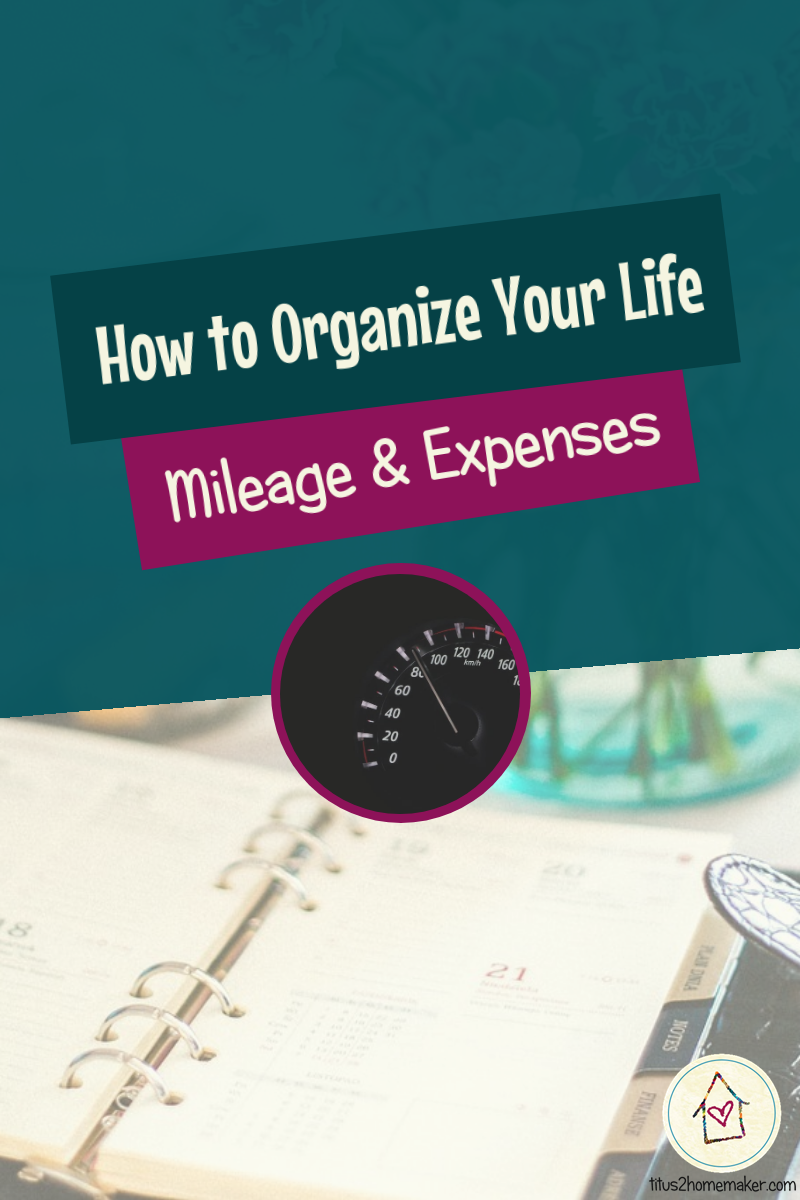Updated Sep. 22, 2019. Originally published Jun. 18, 2013.

If you’re just stumbling across this, please click here for the other posts in the series.
Do You Have Mileage/Expense Records?
I have to begin this post by pointing out that not everyone will have a need to keep records of mileage and/or expenses. There’s a very good chance that if you don’t work for pay in some capacity, you will not need this, and you can skip this week altogether.
But maybe you don’t think you need these records, and you do. Do you do freelance work of any kind? Are you a blogger? Do you work in some other capacity as a contractor or in a similar role? Then consider whether tracking mileage & expenses would be helpful.
STEP 1: Determine whether you need mileage or expense records or both, and how portable they need to be.
If you’re keeping mileage records, you will almost certainly want this to be portable! It will be easiest to make note of your mileage if the records are with you in your vehicle as you’re driving.
Expense records will vary; it depends on the types of expenses you’re tracking. If you’re tracking “out and about” types of expenses such as tolls, parking, or eating out, you’ll likely want this to be portable, too. If you’re only tracking more “stationary” things (such as domain registration), portability may not be necessary.
STEP 2: Choose a method and location and begin keeping your records consistently in this place.
I rarely have travel-related expenses I need to track. (If I need to keep a record of parking fees once a year, I can remember that until I come home. It’s not a regular thing for me, though.) Most of my expenses are incurred at home, through my computer, so I don’t need to carry my notes around with me. An Excel spreadsheet is the method I’ve adopted for tracking this. It’s just a basic one, set up to work like a checkbook register. (I would share it, but I’m bad at that. I’m so inept at Excel that my husband had to create this and send it to me, and I still have to tell it every time I open it that it’s okay to edit the file. Instead, I’m linking to a similar one below.)
It might work for some people just to jot down their mileage in a designated place on their regular calendar. Expenses might even work the same way, if there are very few of them. Just use whatever method works for you – the least complicated method that will get the job done effectively is usually your best bet.
Resources:
- Excel checkbook register templates
- another Excel checkbook register template (w/ category column – helps with taxes!)
- mileage log form
If you’re just stumbling across this, please click here for the other posts in the series.


[…] Address Book Getting Organized 25: Appliance Info Getting Organized 26: Automobile Maintenance Info Getting Organized 27: Mileage & Expenses Getting Organized 28: Budget Getting Organized 29: Bills & Taxes Getting Organized 30: […]